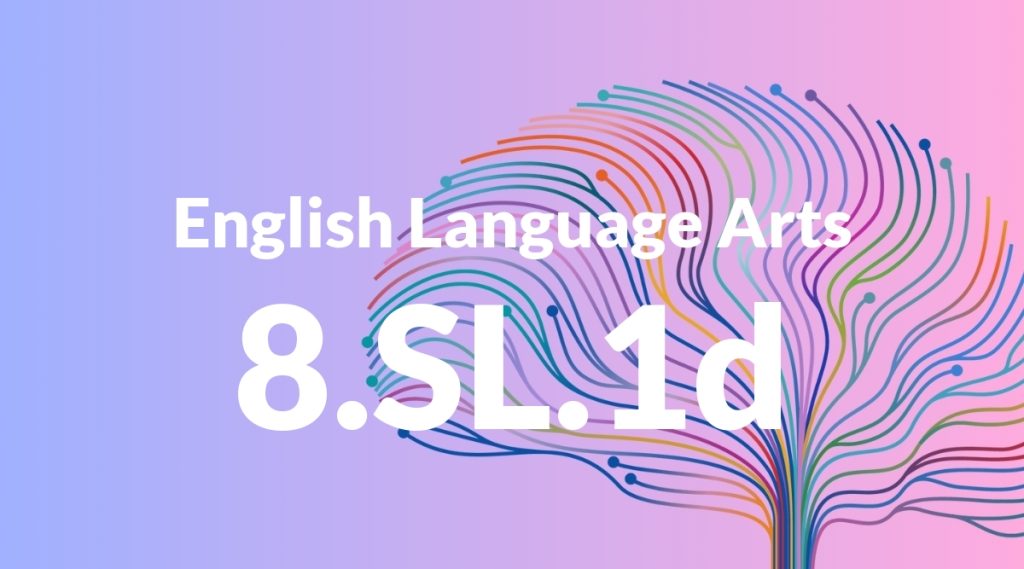Standard: 8.SL.1d – Acknowledge new information expressed by others, and, when warranted, qualify or justify their own views in light of the evidence presented.
Grade level: Grade 8
Subject: English Language Arts
Domain: Speaking & Listening
Teacher Overview
This standard emphasizes the importance of students being able to acknowledge and incorporate new information into their viewpoints. It is crucial for developing critical thinking and effective communication skills, which are essential for academic success and informed citizenship. Students should be comfortable with active listening and summarizing skills. They should also have a foundational ability to form and express their own viewpoints clearly.
Mastering this standard will enable students to critically evaluate information and articulate well-reasoned arguments. This skill is foundational for advanced studies and effective participation in civic life.
Common Misconception 1
A common misconception is that acknowledging new information requires students to abandon their original views entirely. This is incorrect because integrating new information can often enhance and refine their existing viewpoints rather than completely changing them.
Intervention 1
Use role-playing activities where students practice acknowledging new information and integrating it into their arguments. Provide feedback on how they can refine their viewpoints without completely abandoning their original stance.
Common Misconception 2
Another misconception is that justifying their views means dismissing opposing evidence. This is incorrect because effective justification involves addressing opposing evidence and using it to strengthen their own arguments.
Intervention 2
Implement structured debates where students must address opposing viewpoints and use them to bolster their own arguments. Provide guidance on how to respectfully counter opposing evidence.
Prerequisite Knowledge
Students should have basic skills in active listening and summarizing information presented by others. They should also have experience in forming and expressing their own viewpoints.
Subsequent Knowledge
Students will develop the ability to critically evaluate information from multiple sources and integrate it into coherent arguments. They will also enhance their skills in persuasive speaking and writing.
Instructional Activities
- Organize classroom debates on various topics.
- Facilitate group discussions on current events.
- Conduct peer review sessions for written assignments.
- Role-playing activities to practice integrating new information.




